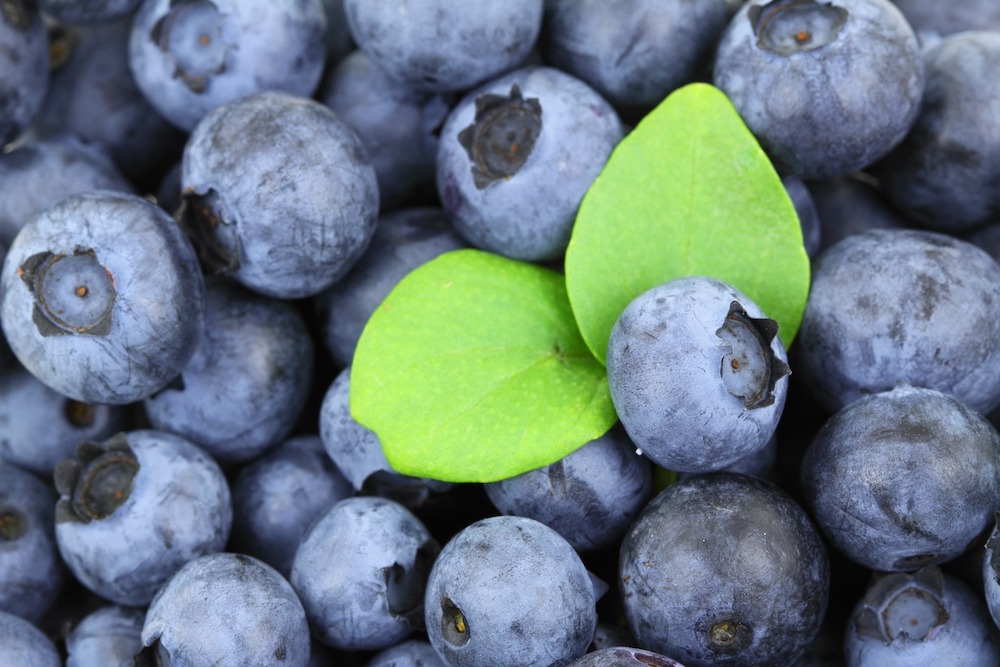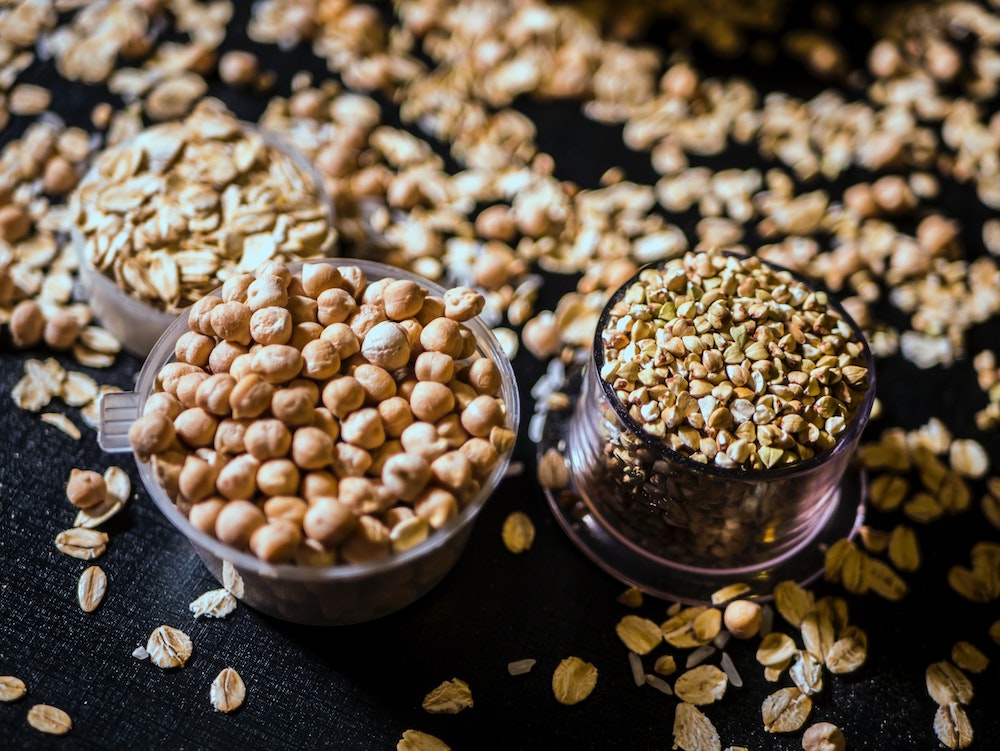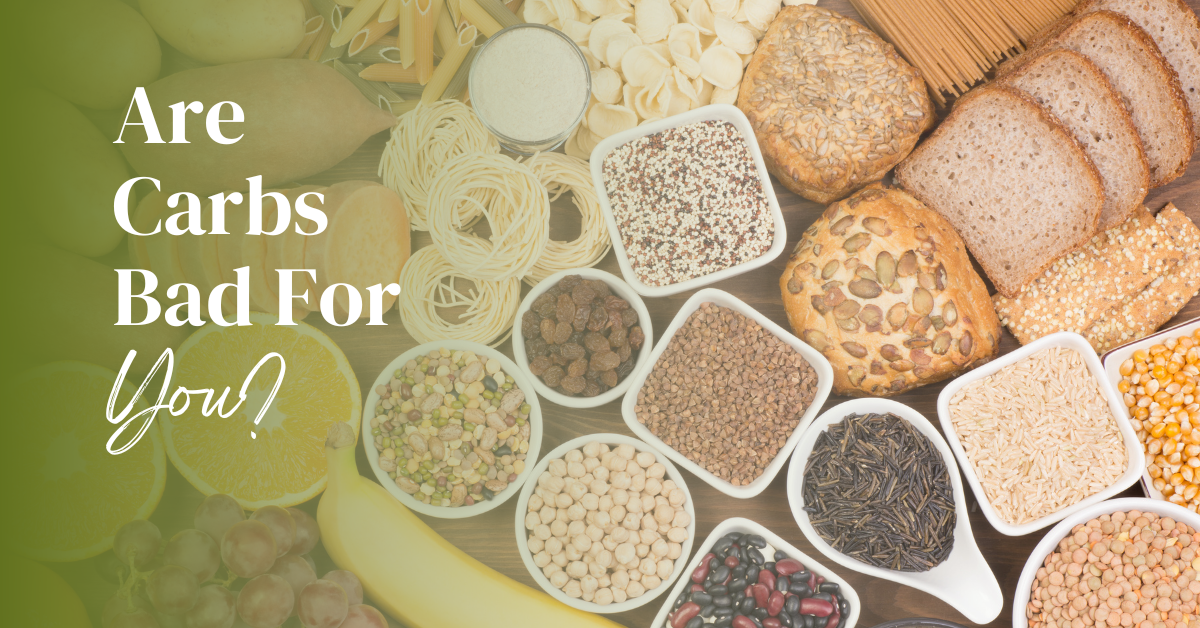“Are Carbs Bad For You?” Hot question. There are many benefits of including carbohydrates in your everyday eating, especially when you are choosing nutrient rich, low processed carbohydrates. On the contrary, there are also some precautions regarding carbohydrates. Let’s set the story straight when it comes to carbs so you can make confident decisions versus avoiding them all together out of fear.
Carbohydrates are often considered the “problem child” of nutrition. Many believe that by simply looking at a slice of bread or cookie they gain weight! The truth is, there is a fantastic biochemical individuality when it comes to how carbohydrates work for any particular body. Meaning, some individuals thrive and feel amazing with moderate to higher amounts of carbohydrates in their diet, others not so much.
The only way to know what type and how many carbohydrates your body feels great with is to explore! Experimenting with carbohydrates can not only decrease your fears that looking at carbs makes you gain weight, but can yield powerful changes in your health, and weight!
Are Carbohydrates Bad For You? Let's Distinguish Between High Quality vs Low Quality Carbohydrates
Not all carbohydrates are created equal, the SAME goes for proteins and fats as well. “Healthy” carbohydrates, or as I like to call them high quality carbohydrates, provide vitamins and minerals, phytonutrients that help us fight disease, fiber for optimal digestion, both fast and sustainable energy sources, and some even come equipped with protein for building hormones, muscle, and boosting immunity. Bonus!
Examples of high quality carbohydrates include:
- Fruit
- Vegetables
- Whole grains
- Beans
- Lentils
- Legumes

Yes, sweet potatoes, regular potatoes, peas, carrots, rice, even organic sprouted bread are included as higher quality carbohydrates! High quality carbohydrates are more “whole” foods and not tainted by humans. There are endless studies regarding the power of plants and their impact on our overall health. If you want your body, metabolism, immune system, skin, you name it to operate at its best, incorporate higher quality sources of carbohydrates that you enjoy. You don’t have to like every fruit and vegetable out there, but I’m sure there are some that you truly do enjoy, so focus on those!
Lower quality carbohydrates include higher processed foods like cereals, processed breads, desserts, foods high in added sugar including high fructose corn syrup, sodas, and white floured products (to name a few). These can very much dysrupt you feeling your best and functioning at your best because frequent intake of these sources of carbohydrates are proven to:
- Be a precursor to weight gain
- Instigator of appetite (many of these foods are specifically engineered to increase your cravings so you eat more and BUY more)
- Metabolic dys-regulator
- Nutrient depleter
- Insulin and blood sugar destabilizer
- Provoker of inflammation
If you have a cupcake, does this make you a “bad” person? No. If you have an ice cream cone are you going to gain fat overnight? No. However, if you continuously and frequently incorporate lower quality carbohydrates into your diet, you are not setting yourself up for optimal health, optimal mood, or optimal weight loss (if that is a goal). Aim for balance and moderation when it comes to incorporating some fun, lower quality treats into your diet. If you try to cut them out all together because in your mind you feel you “shouldn’t” be eating these, it will only make you crave them more.

Carbohydrates and Blood Sugar
As carbohydrates get broken down into sugar, your body releases insulin to help shuttle sugar to your cells. Some people however have issues producing insulin, others have issues being responsive to insulin. When blood sugar management issues like this occur, this can easily lead to weight gain or be a huge disruptor to weight loss (long story short). This doesn’t mean carbohydrates are “bad”, it means YOUR body may simply thrive best with less and with higher quality sources that are more slow to digest.
But Then Why Do Carbohydrates Make Me Gain Weight?
Too high amounts of carbohydrates for an individual’s biochemistry can lead to weight gain over time due to blood sugar related issues or interruption of fat oxidation.
Quick weight gain after carbohydrate consumption however is another story. Many individuals eat a carbohydrate-rich meal and find the next day they gained a pound or two and vow that carbohydrates make them fat, are evil, and should be avoided forever.
Here’s what you need to know: When you consume carbohydrates (minus fibrous vegetables broccoli, salad greens, etc) your body breaks these carbohydrates down into glucose (sugar). Glucose is your body and brain’s number one energy source. Insulin shuttles this glucose to your cells for energy, and excess is stored as glycogen (emergency glucose) in your muscles and liver.
Here’s the kicker: For every ONE molecule of glycogen there are 3-4 molecules of water attached. This means glycogen attracts water molecules and hence adds water weight. Think of it like a dry plant you haven’t watered for days. If you were to weigh that dry plant, it would weigh pretty light! If you water it, that plant would weigh more due to the additional water weight. Your plant didn’t get FAT, right?! It just weighs more because of the additional water weight, make sense?
The same happens if you were to remove or drastically reduce carbohydrates from your diet. By having less glycogen stored, you therefore naturally have less water weight and would lose a few initial pounds – of water weight. This is what happens on the first week of a low carb or no carb diet, but it’s just water weight. If you have MORE carbohydrates than you normally due on occasion, then you’ll attract more water weight after those eating experiences.
Water weight does NOT equal fat on your body. It takes 3500 calories that your body doesn’t need to gain ONE pound of true fat, and I doubt that dessert you had was 3500 calories! The scale that you rely on in the morning isn’t able to tell you that you only gained water weight because of your juicy garlic bread you had the night before.

Why Do I Always Crave Carbohydrates?
If you have a known or unknown blood sugar management issue going on, this can definitely play a role in your cravings. There are many other valid reasons why you could be craving carbohydrates, and NONE of them are because you are addicted to carbs:
- You’re not eating balanced meals. Having carbohydrates without sources of protein or healthy fat paired up with it can cause blood sugar highs and lows and thus increase cravings.
- You’re not eating ENOUGH high quality carbohydrates. Since so many people avoid carbohydrates to lose weight, they (surprise!) find themselves craving them and the nutrients they provide us, especially later in the day! Explore adding a high quality carbohydrate source at your first or second (or both) meals of the day and see how that impacts your cravings later on.
- You have a history of using sweet, salty, or crunchy carbs when you’re emotionally triggered. This is simply a matter of conditioning and NOT because you’re addicted to carbs. Work to find alternative means to soothe and meet your true needs without going to the sweets and you’ll find this intensity decreases over time.
- You don’t allow yourself moderation.
- Your evolutionary brain at one point learned that when carbohydrates are consumed, it means seasonal carbohydrates are available and to stock up before winter, thus increasing your cravings to consume more carbohydrates. Thousands of years later, we can still experience such signals. This again does not mean carbohydrates are “bad” for you, it’s a matter of respecting how carbohydrates impact your biochemistry and its efforts to ensure your survival.
- Check out our Can You Be Addicted To Sugar blog for even deeper explanations behind your carb cravings!
So, are carbohydrates bad for you? Take “bad” out of your vocabulary and look at it from the perspective of what types of carbs and how many carbohydrates you feel best with. By leaning into experimenting more with carbohydrates, by intentionally being aware of how certain carbohydrates and amounts of carbohydrates make you feel, you can find the perfect fit between your goals and what realistically works for your needs for balance. It’s amazing what you learn when you put on your curiosity hat and simply explore versus trying to only eat certain things to “be good” or avoiding carbohydrates all together! Have fun and good luck!


